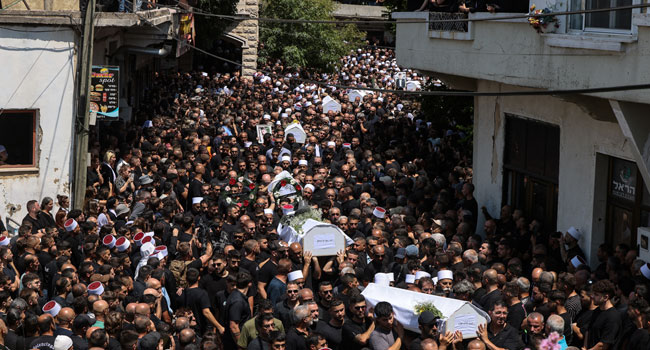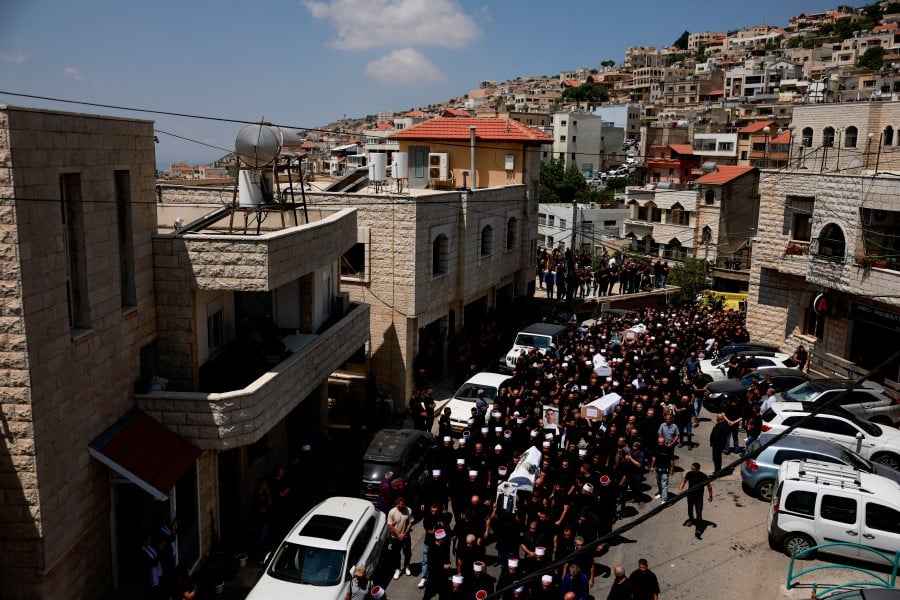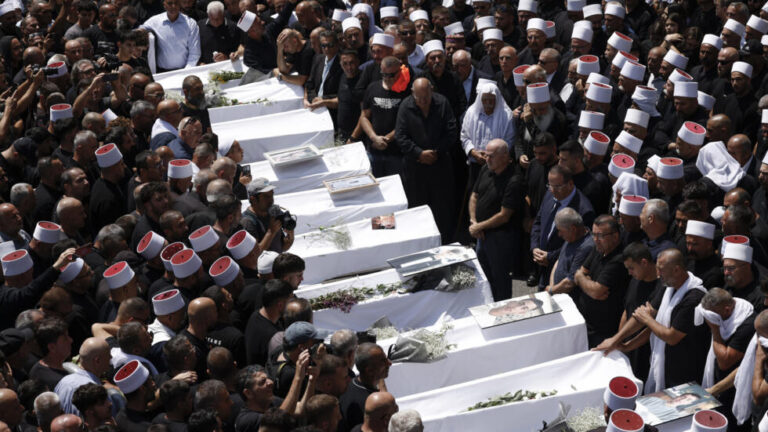Israeli Defense Minister Yoav Gallant vowed to deliver a strong response after a rocket attack from Lebanon resulted in the deaths of 12 young people in the Israeli-annexed Golan Heights, raising concerns that the conflict in Gaza might escalate.
Iran has warned Israel that further military actions in Lebanon could have severe consequences, while Western nations, including France and Germany, have condemned the attack and called for calm. The European Union has demanded an independent investigation into the incident.
Israel’s military labeled the attack as the deadliest on Israeli civilians since the October 7 assault that ignited the Gaza conflict and led to ongoing skirmishes along the Lebanese border. Israel has accused Hezbollah of launching the Falaq-1 Iranian rocket, but the Iran-backed group has denied involvement, though it admitted to targeting Israeli military sites.

Following the rocket fire in Majdal Shams, a Druze-majority town, Prime Minister Benjamin Netanyahu returned early from the United States and held an emergency security meeting. He declared that Hezbollah would face unprecedented consequences for the attack.
The Israeli military retaliated by targeting Hezbollah positions in Lebanon, including airstrikes on Taraiyya village. Hezbollah claimed its rocket attacks were in support of Hamas, which has been engaged in conflict with Israel since the October 7 attack that resulted in significant casualties on both sides.
The recent rocket strike on Majdal Shams hit a football pitch, killing young people aged 10 to 16. Thousands of local residents attended a somber funeral for the victims. Israel’s military response included strikes on Hezbollah sites, and an Israeli drone targeted locations in Lebanon.
Riad Kahwaji, head of the Institute for Near East and Gulf Military Analysis, suggested the possibility of a misfire and called for an independent investigation. U.S. Secretary of State Antony Blinken indicated that Hezbollah was likely responsible for the attack.

The European Union’s foreign policy chief condemned the violence and called for an international investigation. The United Nations urged restraint, warning that escalating violence could lead to a wider regional conflict.
Lebanon’s government has called for an immediate end to hostilities. Iran’s foreign ministry criticized Israel’s actions and warned against further aggression. Meanwhile, efforts to negotiate a ceasefire in Gaza continue, with talks scheduled to take place in Rome.
Since the conflict began, at least 527 people have been killed in Lebanon, including both fighters and civilians. In northern Israel, the casualties include 22 soldiers and 24 civilians. Netanyahu has pledged to secure Israel’s northern border, while Hezbollah has indicated a willingness to halt cross-border attacks if a ceasefire in Gaza is achieved.


